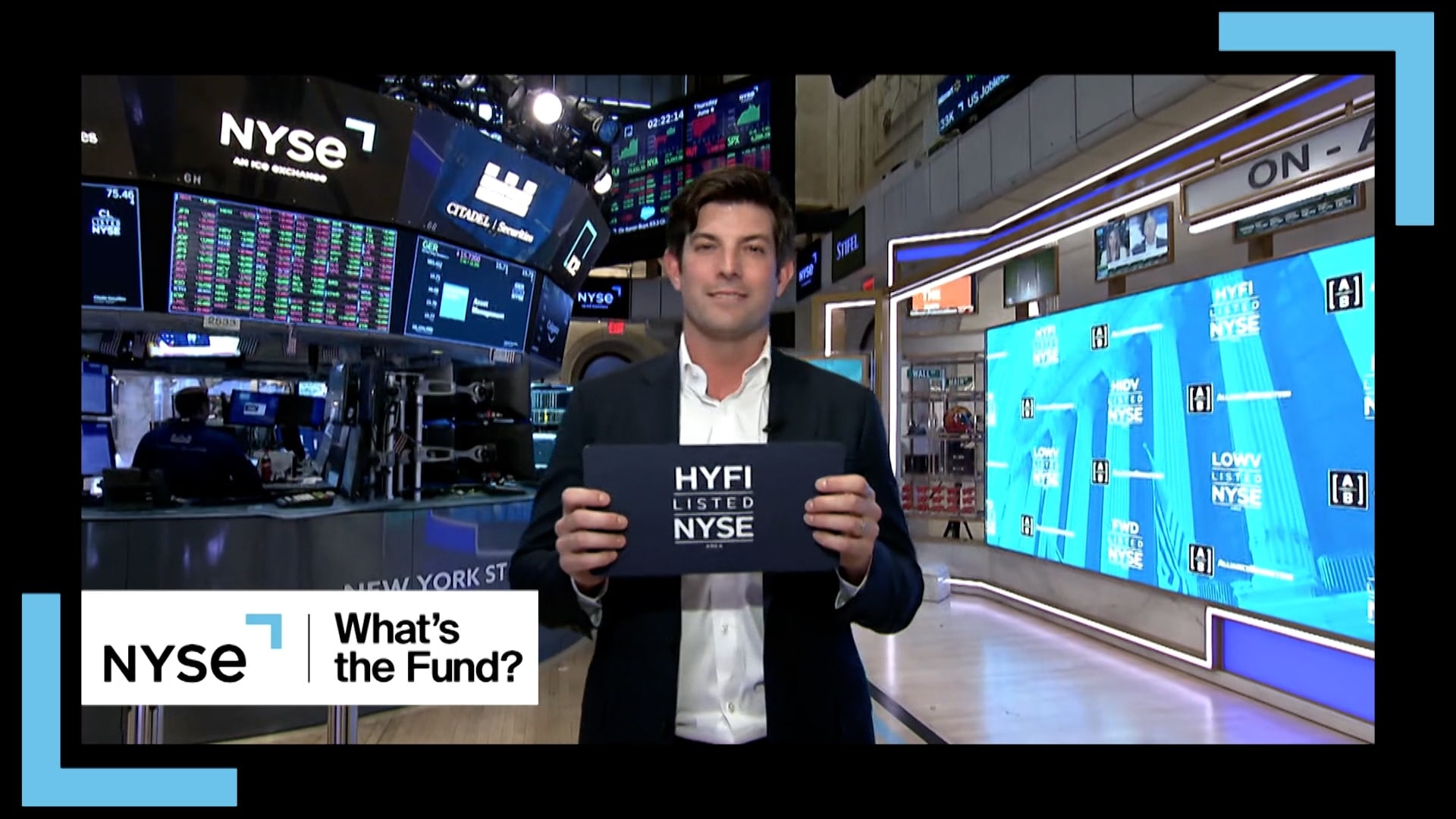Fixed Income
Overview
An actively-managed US high-yield bond ETF that seeks to deliver a high level of income
About this Fund
- Seeks to provide income by emphasizing three pillars: security selection, dynamic beta management and a disciplined investment process
- Disciplined investment process that combines quant and fundamental research, as well as both top-down and bottom-up analysis
- Beta management is emphasized to capture upside alpha and reduce downside risk
Investment Approach
- Primarily invests in US high-yield corporate bonds
Why Invest in this High Yield ETF?
- Tap into Higher Potential Income: High-yield bonds may offer a significant opportunity for yield relative to other asset classes by offering higher interest rates than investment grade corporate and government bonds.
- Diversify your portfolio: High Yield bonds behave differently than stocks and other fixed income securities. Including high yield in traditional balanced equity and fixed income portfolios has a track record of improved risk-adjusted returns. 1
- Win by not losing: Empirical evidence shows that high-yield performance is driven more by avoiding underperforming credits than increasing exposure to the outperforming credits. HYFI’s active approach seeks to avoid defaults and downgrades. By avoiding these credits, active management seeks to improve returns and reduce volatility. Passive strategies on the other hand do not have as much discretion in what they hold, leaving them more vulnerable to poor performing bonds.
- Embrace Active in High Yield: AB’s active approach allows us to play offense and defense in a volatile environment, adjusting levers such as duration, credit quality, and industry or sector weights. Meanwhile, passive funds are designed to track an index without regard for unintended risks. By combining fundamental and quantitative analysis, the process is designed to identify the right bonds and avoid the wrong bonds.
1 Portfolio returns from January 1990 to December 2024 show risk-adjusted return for equities as 0.71, bonds as 0.78, and high yield as 0.90. Past performance does not guarantee future results. Equities are represented by the S&P 500; bonds are represented by the Bloomberg Global-Aggregate Total Return Index; high yield are represented by the Bloomberg US High Yield Index 2% Constrained. Bloomberg Global-Aggregate Total Return Index was incepted on January 1, 1990. Source: Bloomberg, S&P and AB
Stay informed on Active High-Yield Investing
Meet the Team
Head of ETF Specialists, Brett Sheely, discusses the strategy for HYFI, AB's first mutual fund to active ETF conversion.
Additional Information
AB High Yield ETF (HYFI) FAQs
Risks To Consider
-
Investing in ETFs involves risk and there is no guarantee of principal.
Investors should consider the investment objectives, risks, charges and expenses of the Fund/Portfolio carefully before investing. For copies of our prospectus or summary prospectus, which contain this and other information, visit our Literature Center or contact your AB representative. Please read the prospectus and/or summary prospectus carefully before investing.
Shares of the ETF may be bought or sold throughout the day at their market price on the exchange on which they are listed. The market price of an ETF's shares may be at, above or below the ETF’s net asset value ("NAV") and will fluctuate with changes in the NAV as well as supply and demand in the market for the shares. Shares of the ETF may only be redeemed directly with the ETF at NAV by Authorized Participants, in very large creation units. There can be no guarantee that an active trading market for the Fund’s shares will develop or be maintained, or that their listing will continue or remain unchanged. Buying or selling the Fund’s shares on an exchange may require the payment of brokerage commissions and frequent trading may incur brokerage costs that detract significantly from investment returns.
-
Below Investment Grade Securities Risk: Investments in fixed-income securities with lower ratings (a/k/a junk bonds) are subject to a higher probability that an issuer will default or fail to meet its payment obligations. These securities may be subject to greater price volatility due to such factors as specific municipal or corporate developments and negative performance of the junk bond market generally and may be more difficult to trade than other types of securities.
-
Credit Risk: A bond’s credit rating reflects the issuer’s ability to make timely payments of interest or principal—the lower the rating, the higher the risk of default. If the issuer’s financial strength deteriorates, the issuer’s rating may be lowered, and the bond’s value may decline.
-
Derivatives Risk: Derivatives may be more sensitive to changes in market conditions and may amplify risks.
-
Foreign (Non-U.S.) Investment Risk: Investments in securities of non-U.S. issuers may involve more risk than those of U.S. issuers. These securities may fluctuate more widely in price and may be more difficult to trade than domestic securities due to adverse market, economic, political, regulatory, or other factors.
-
Inflation Risk: Prices for goods and services tend to rise over time, which may erode the purchasing power of investments.
-
Investment Securities Risk: To the extent the Fund invests in other funds, shareholders will bear to layers of asset-based expenses, which could reduce returns.
-
Leverage Risk: Trying to enhance investment returns by borrowing money or using other leverage transactions such as reverser purchase agreements—magnifies both gains and losses, resulting in greater volatility.
-
Market Risk: The market values of the portfolio’s holdings rise and fall from day to day, so investments may lose value.
-
AllianceBernstein L.P. (AB) is the investment Advisor for the Fund. -
Distributed by Foreside Fund Services, LLC. Foreside is not affiliated with AllianceBernstein.
-
Prior to close of business on 5/12/2023, the Fund operated as an open-end mutual fund. The Fund has an identical investment objective and substantially similar investment strategies and investment risk profiles as the predecessor mutual fund. The NAV returns include returns of the Advisor Share Class of the predecessor mutual fund prior to the Fund’s commencement of operations. Performance for the Fund’s Shares has not been adjusted to reflect the Fund’s Shares’ lower expenses than those of the predecessor mutual fund’s Advisor Share Class. Had the predecessor fund been structured as an exchange-traded fund, its performance may have differed. Please refer to the current prospectus for further information. Performance prior to 7/27/16 reflects AB High Yield Portfolio, a series of the AB Pooling Portfolios that was reorganized into the Fund and is the surviving entity in the reorganization. Performance for those periods would have been lower if such accounting survivor had operated at the Fund’s current expense levels. Prior to 4/30/21, the Fund was called AB FlexFee High Yield Portfolio. Data prior to 4/30/21 relates to AB FlexFee High Yield Portfolio.


